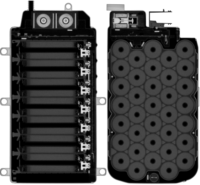Brian Walters, director of product research at J.D. Power and Associates (Westlake Village, CA), says that while styling is the number one reason consumers buy a particular vehicle, the number two consideration is long-term dependability and durability. "And seven- to 10-year warranties speak volumes," Walters says.
For some companies, at least, the strategy seems to be paying off. South Korean automakers Hyundai Motor Corp. and Kia Motors Corp. -- which have both shown recent notable improvements in the annual J.D. Power Initial Quality Study-have both racked up significant sales improvements since offering extended 10-year/100,000 mile warranties.
Other companies with improved quality records also are looking to cash in on the achievement. American Isuzu Motors Inc. (Cerritos, CA), which has improved its initial quality by 39% in the J.D. Power study over the past five years, now offers a drivetrain warranty of 120,000 miles or 10 years. And Daimler-Chrysler AG's Chrysler Group (Auburn Hills, MI) in July announced a seven-year/70,000-mile powertrain warranty on its Chrysler, Jeep and Dodge brand vehicles.
One of the latest car makers to jump on the extended warranty bandwagon is American Suzuki Motor Corp. (Brea, CA). In August, Suzuki introduced its own seven-year/100,000-mile powertrain limited warranty on its entire product line, showing the company's confidence in its product quality. Suzuki claims its warranty program is "America's best" because it allows the warranty to transfer to subsequent owners -- many warranties are nontransferable or only transferable to the original owner's immediate family members -- and without any deductibles.
At Chrysler Group, executives say that improvements in vehicle quality are paying off in reduced warranty costs. "Our overall quality levels have improved substantially, while warranty costs have dropped 20% in the latest model year, and have been cut in half since 1996," declares Dieter Zetsche, Chrysler Group vice president and chief executive officer.
"Automakers wouldn't offer the extended warranties if the quality wasn't there to back it up," says J.D. Powers' Walters. He expects other automakers to follow suit because as automotive quality has generally improved across the board, the automakers are saving money on warranty claims.
Improved warranties are just the one of the incentives being offered to consumers. GM reinstated its zero-percent financing and cash-back offers in early July, catapulting the company to a 23.9% increase in car and truck sales over the previous month and making it the industry sales leader for the month. The stronger-than-expected sales depleted inventory levels, prompting GM to increase third quarter production, a welcome sign amid a turbulent economy.
Several other automakers posted July gains, including Ford, Toyota, Mitsubishi and Honda. July is typically a slow period as automakers prepare to roll out new models, but the industry sold more than 1.52 million vehicles, 8% higher than during the same period last year.



